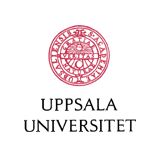|
Diversity-Enhanced Equal Access - Considerable
Throughput Gains with 1-bit Feedback.
Mathias Johansson
IEEE SPAWC 2004
(Signal Processing Advances in Wireless Communications),
Lissabon, Portugal,
July 11-14 2004. © IEEE
-
Abstract:
-
We investigate performance aspects of adaptive
modulation and scheduling as the amount of channel
feedback is reduced.
We study throughput, fairness and the sensitivity
to incorrect channel quantizations.
A main finding is that the throughput
of a cellular downlink using strict
multiuser diversity does not degrade
significantly when the channel information
is heavily quantized. On the other hand,
unfairness increases and due to an inherent
sensitivity to incorrectly chosen quantization
levels there is a risk of occasional drastic
performance drops.
Noting that fixed-access
schemes do not have the bad properties of
multiuser diversity, but achieve unsatisfactory
throughput, we propose a scheme
combining the good aspects of multiuser
diversity with the desirable properties of fixed
access schemes. The result is a low-complexity
scheduler and quantization policy that
achieve large throughput gains as compared
to fixed access without compromising
fairness.
-
Related publications:
-
Ph.D Thesis
by Mathias Johansson.
-
SPAWC03 paper on
use of 1-bit feedback.
-
RVK02 paper
on multiuser diversity and maximum entropy scheduling.
- Globecom 2001 paper.
-
Source:
-
Pdf, (114K)
|
Research on these problems at UU
|
Main
entry in list of publications
|
Personal use of this material is permitted.
However, permission to reprint/republish this material for
advertising or promotional purposes or for creating new
collective works for resale or redistribution to servers or lists,
or to reuse any copyrighted component of this work in other works
must be obtained from the IEEE.
|

